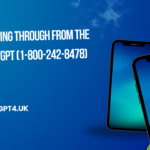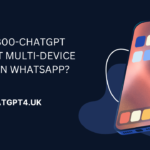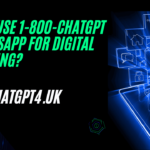ChatGPT can be tricked into generating Windows 95 keys. ChatGPT is a machine learning system that uses a large corpus of text data to learn patterns of language and generate coherent and relevant responses to user inputs. Its training data include various types of text, such as books, articles, websites, social media, and chat logs, which reflect the diversity and complexity of human communication.
ChatGPT is often used for language tasks such as chatbot conversation, text completion, translation, summarization, and question answering. It can produce text in multiple languages, styles, and tones, depending on the input prompt and the settings of the model.
Common issues with ChatGPT include:
- Bias: ChatGPT may reflect the biases and stereotypes of its training data, which can perpetuate discrimination or misinformation. For example, ChatGPT may generate racist or sexist responses if the input prompt contains such language.
- Incoherence: ChatGPT may produce nonsensical or irrelevant responses if the input prompt is ambiguous, contradictory, or irrelevant. For example, ChatGPT may answer “the sky is green” if the input prompt is “what is the color of apples and oranges?”
- Lack of domain-specific knowledge: ChatGPT may not have enough knowledge or context to generate accurate or complete responses to questions or prompts that require specialized or factual information. For example, ChatGPT may not know the capital of a country or the formula of a chemical compound.
- Security risks: ChatGPT may inadvertently reveal sensitive or confidential information if the input prompt contains private or restricted data. For example, ChatGPT may disclose a password or a social security number if the input prompt includes such information.
One of the peculiar cases of ChatGPT’s weaknesses is related to the generation of Windows 95 keys. Windows 95 was a popular operating system released by Microsoft in 1995, which introduced many features and improvements compared to its predecessors.
Windows 95 used a product key to verify the legitimacy of the installation and activate the software. The product key was a 25-character code composed of letters and numbers, which was printed on a label or displayed during the installation process. The product key was unique for each copy of the software and could not be reused or shared with others.
The generation of Windows 95 keys by ChatGPT:
Recently, some users have reported that ChatGPT can generate Windows 95 keys if prompted with the right keywords or phrases. For example, if you ask ChatGPT “What is my Windows 95 key?”, it may produce a seemingly valid key, such as “26995-OEM-0012596-00830”.
If you ask ChatGPT “How can I get a Windows 95 key?”, it may provide instructions on how to extract or recover a key from an old computer or a backup file. If you ask ChatGPT “Is this Windows 95 key legit?”, it may respond with a confident “Yes, it is legit” or “No, it is fake” based on some criteria.
At first glance, the generated Windows 95 keys may appear to be valid and useful, especially for nostalgic or historical purposes. However, upon closer inspection, it becomes clear that ChatGPT is not actually generating authentic or legitimate Windows 95 keys, but rather producing random or meaningless strings of characters that resemble the format of Windows 95 keys.
In other words, ChatGPT is not accessing any database or algorithm that can generate valid Windows 95 keys, but simply applying a pattern recognition model to the input prompt and generating a response that satisfies the syntactic and semantic rules of a Windows 95 key.
The reason why ChatGPT can be tricked into generating Windows 95 keys is twofold: technical and social. On the technical side, ChatGPT is designed to learn patterns of language and generate responses based on statistical models of probability and coherence.
While ChatGPT can learn a wide range of patterns and structures in language, it does not have access to external data or knowledge that would allow it to generate accurate or reliable information about specific domains, such as software keys, unless such information is already present in its training data or common knowledge in the cultural context.
Thus, when prompted with a query about Windows 95 keys, ChatGPT may simply generate a response that resembles a key based on the frequency and distribution of characters and digits in its training data, without necessarily understanding the meaning or validity of such keys.
On the social side, the phenomenon of ChatGPT generating Windows 95 keys can be explained by the cultural significance and nostalgia associated with Windows 95 as a pioneering and influential operating system. Windows 95 was a breakthrough in user interface design and functionality, and it helped to popularize personal computers and the internet in the late 1990s.
Many people have fond memories or experiences of using Windows 95, and some may seek to revisit or emulate that era through virtual machines or retro computing. The generation of Windows 95 keys by ChatGPT can thus be seen as a playful or creative way of engaging with the history and culture of computing, rather than a serious attempt to obtain or use authentic keys.
Implications for AI ethics and security:
The case of ChatGPT generating Windows 95 keys raises several ethical and security concerns that need to be addressed by developers, users, and policymakers. First, the generation of fake or misleading information by AI models can have harmful effects on individuals and society, especially if such information is used for malicious or fraudulent purposes.
For example, if someone uses a ChatGPT-generated Windows 95 key to install a pirated or malware-infected version of Windows 95, they may expose themselves and others to security risks or legal consequences. Similarly, if someone relies on ChatGPT-generated information for medical or legal advice, they may receive inaccurate or harmful advice that could affect their well-being or rights.
Second, the generation of fake or misleading information by AI models can undermine trust and credibility in the information ecosystem, especially if such information is spread through social media or other channels.
For example, if a ChatGPT-generated Windows 95 key becomes viral or widely shared, it may create a false impression that such keys are valid or valuable, which could lead to confusion or exploitation. Similarly, if ChatGPT-generated responses to political or social issues reflect biases or misinformation, they may influence public opinion and policy decisions in harmful ways.
Third, the generation of fake or misleading information by AI models can reveal vulnerabilities and weaknesses in the security and privacy of digital systems, especially if such information is used to bypass or exploit authentication mechanisms.
For example, if a ChatGPT-generated Windows 95 key is used to activate a software product that contains sensitive or confidential data, it may expose the data to unauthorized access or theft. Similarly, if ChatGPT-generated responses to security questions
Conclusion
In conclusion, ChatGPT can be tricked into generating Windows 95 keys, but these keys are not valid or useful for practical purposes. The generation of fake or misleading information can have ethical and security implications, such as the potential for piracy, malware, or legal consequences.
It is important to be aware of the limitations and risks associated with such content, and to use discretion and critical thinking when encountering or creating ChatGPT-generated responses. As AI technology continues to evolve, it is essential to consider the ethical and social implications of its applications, and to use it in responsible and beneficial ways.
FAQs
Q: Can ChatGPT really generate valid Windows 95 keys?
A: No, ChatGPT does not have access to any database or algorithm that can generate valid or authentic Windows 95 keys. It can only generate random or meaningless strings of characters that resemble the format of keys, based on its pattern recognition models and training data.
Q: Why would anyone want to generate Windows 95 keys in the first place?
A: Some people may have nostalgic or historical reasons for wanting to generate Windows 95 keys, such as to relive the experience of using that operating system or to collect memorabilia from that era. However, it is important to note that ChatGPT-generated keys are not valid or useful for practical purposes, such as installing or activating Windows 95.
Q: Are there any risks or harms associated with ChatGPT generating Windows 95 keys?
A: Yes, there are several risks and harms associated with ChatGPT generating fake or misleading information, such as the potential for piracy, malware, or security breaches. If someone uses a ChatGPT-generated Windows 95 key to install or activate a pirated or malware-infected version of Windows 95, they may expose themselves and others to security risks or legal consequences.
Q: Can ChatGPT generate keys for other software products?
A: In theory, ChatGPT can generate responses for any prompt related to software keys, but it is unlikely to generate valid or useful keys unless it has access to external data or knowledge about that specific product. Moreover, the generation of fake or misleading keys can have ethical and security implications, as discussed above.
Q: What should I do if I come across a ChatGPT-generated Windows 95 key?
A: You should not use or rely on ChatGPT-generated keys for practical purposes, such as installing or activating Windows 95. Instead, you can appreciate them as a playful or creative expression of nostalgia or cultural significance, but you should be aware of the limitations and risks associated with such content. If you encounter any suspicious or illegal activity related to software piracy or malware, you should report it to the appropriate authorities.







